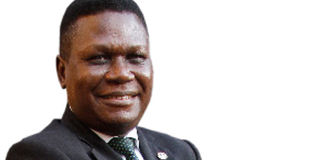The idle, disorderly rogues and criminalisation of the excluded

Norbert Mao
What you need to know:
Targeted. It is not hard to classify those who get nabbed for this offense. The police have targeted unemployed youth and the urban poor who are frequently found playing cards, ludo, mweso and other games.
A debate has been sparked off by a presidential directive to law enforcement agencies not to arrest those suspected of being idle and disorderly. President Museveni wants officers to look the other way. The Inspector General of Police (IGP) immediately instructed his officers to comply.
This is not the first time President Museveni has given the same directive. The police spokesperson confirmed that they are no longer arresting people on charges of being idle and disorderly. Idlers are now arrested and charged with the offense of being rogues or vagabonds. This, however, is a matter of semantics. It is the other side of the same coin.
In 2015, the IGP announced that the offence should no longer be enforced and as such, if you are being arrested under the offence of being idle and disorderly, please inform the arresting officer that he/she is not allowed to do this. In the words of the IGP, “if a police officer arrests you for being idle and disorderly, refuse.” The prison authorities also said the only people remanded at their main facility in Luzira are those arrested on charges of being rogues and vagabonds.
Under the Penal Code Act, the definition of being idle and disorderly includes; (a) a prostitute behaving in a disorderly or indecent manner in any public place; (b) a person who wanders or places himself or herself in any public place to beg or gather alms (money or food) or makes any child to do that; (c) person who plays any game of chance (like matatu) for money in a public place; (d) a person who acts in a manner that is likely to cause a breach of peace; (e) a person without any lawful excuse publicly does any indecent act; and (f) a person who in a public place loiters for immoral purposes.
It is not hard to classify those who get nabbed for this offense. The police have targeted unemployed youth and the urban poor who are frequently found playing cards, ludo, mweso and other games. Others are the army of street children and beggars, who are a permanent feature of Kampala’s busy streets.
Ladislaus Rwakafuuzi, a human rights advocate of note, says this law is a vestige of colonialism. “Police carry out swoops yet they don’t have intentions of taking people to court, but to extort money from people; the swoops always target people on foot, well dressed people are left,” he said.
“You cannot target people who are poorly dressed assuming they are thieves. Under the law you have to prove someone is a thief, but not with assumptions,” he said. He adds that unlike other cases, such arrests don’t have complainants so they are unconstitutional. The Constitution requires particulars of crimes to be clear. This one is extremely vague. It is thus used to violate the rights of the poor, vulnerable and marginalised members of society.
The rogue and vagabond provision states that “…every suspected person or reputed thief who has no visible means of subsistence and cannot give a good account of himself or herself; and every person wondering in or upon near any premises or in any road or highway or any place adjacent thereto, or any public place at such time and under such circumstances as lead to the conclusion that such person is there for an illegal or disorderly purpose, shall be deemed to be a rogue and vagabond and commits an offence and is liable for six months and for every subsequent offence to imprisonment for one year...”
The victims of these archaic laws are very poor. Unless they tip the arresting officers, they get detained. They also lack access to legal representation. Their only way out is to plead guilty in order to get light sentences. These laws have no place in our law books. They are a relic of colonial pride and prejudice inherited by the post-colonial elites. Above all, they only treat symptoms of inequality and social injustice. To avoid looking like a dog chasing its tail, we should tackle the root cause.


